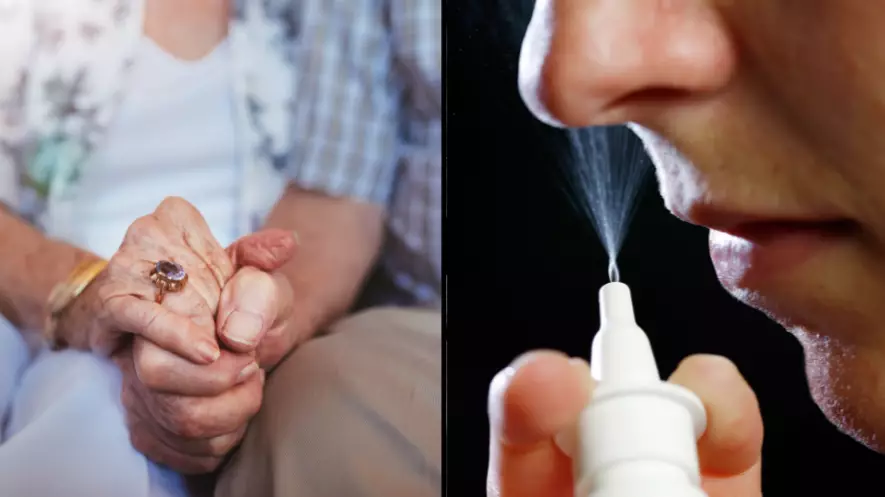
For the first time in many years, there is renewed hope for the end of Alzheimer's disease with the first human trial of a nasal vaccine kicking off in the US.
Led by Brigham and Women's Hospital, the vaccine is believed to prevent or slow the progression of Alzheimer's.
The vaccine uses a drug, Protollin, to stimulate immune cells, removing sticky plaque from the brain.
The trial will see 16 people between the ages of 60 and 85 with Alzheimer's symptoms receive two doses of the vaccine one week apart.
Advert
The vaccine uses decades of research that suggests that stimulating the immune system can help combat the build-up of beta-amyloid plaques in the brain.
This build-up leads to the symptoms of Alzheimer's, which includes memory loss, insomnia and loss of language or reasons skills.
The sticky plaques form when pieces of beta-amyloid protein accumulate between nerve cells, which disrupt the ability for the brain to recall information or perform correctly.
By spraying the Protollin directly into the nasal passage, researchers hope it will activate immune cells which then fight to remove the increasing plaque.

Speaking to Business Insider, Jeffrey Cummings, a brain science professor at the University of Nevada, Las Vegas, said the spray isn't a new concept, but the tests are promising.
Advert
"The idea of activating immune cells is becoming more and more central to the idea of treating Alzheimer's disease," Cummings said.
He added a nasal spray could be better at delivering Protollin to immune cells than an infusion or inhaler.
Howard L. Weiner, MD, co-director of the Ann Romney Center for Neurologic Diseases at the Brigham, said this could be a turning point for sufferers.

"The launch of the first human trial of a nasal vaccine for Alzheimer's is a remarkable milestone," said Weiner.
Advert
"Over the last two decades, we've amassed preclinical evidence suggesting the potential of this nasal vaccine for AD.
"If clinical trials in humans show that the vaccine is safe and effective, this could represent a nontoxic treatment for people with Alzheimer's, and it could also be given early to help prevent Alzheimer's in people at risk."
Participants in the trial are in an early stage of the illness and otherwise in good health, making them optimal candidates for the tests.
Researchers will need to demonstrate the spray is safe and conduct more research on the required dose for the trial to progress to the next stages.
Featured Image Credit: Alamy Stock Photo